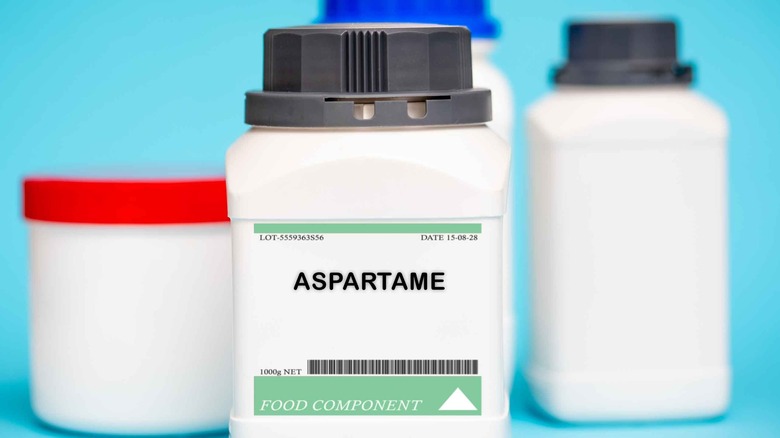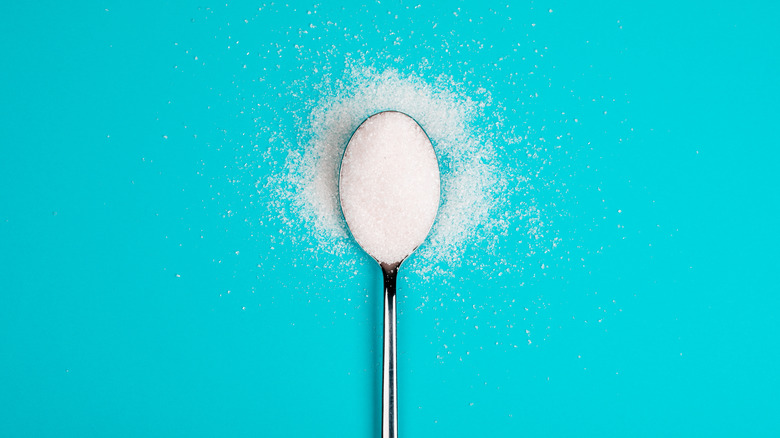Aspartame Named 'Possibly' Carcinogenic In Leaked WHO Report, Sparking Debate
Step into any supermarket, and you'll find the low-calorie sweetener aspartame everywhere, from popular diet drinks to chewing gum to ice cream. But the latest news about this food additive may soon have consumers shying away from it. This product is expected to be added to a list of possible carcinogens, according to an upcoming report from the International Agency for Research on Cancer (IARC), which is part of the World Health Organization (WHO).
The IARC report isn't scheduled to be released until July 14, but information about its contents from anonymous sources were leaked (via Reuters). Another organization known as the Joint WHO and Food and Agriculture Organization's Expert Committee on Food Additives (JECFA) has also been involved with this latest information on aspartame and will announce its review along with the IARC the same day.
Depending on its findings, the JECFA may change its position of what amount of aspartame is safe for human consumption. The organization had previously said that aspartame was safe up to 40 milligrams per kilogram of body weight per day. However, some organizations are challenging the validity of the IARC report.
Aspartame has been a hotly debated sweetener for decades
Kate Loatman, the executive director of the International Council of Beverages Associations, explains, "Public health authorities should be deeply concerned that this leaked opinion contradicts decades of high-quality scientific evidence and could needlessly mislead consumers into consuming more sugar rather than choosing safe no- and low-sugar options." Certain scientists and researchers back this up, claiming that it's important to review the whole IARC report before drawing any conclusions on aspartame and its potential to be cancer-causing, per Science Media Centre.
The controversy around aspartame has swirled around the product for decades. Aspartame was discovered in 1965 by James Schlatter, and the U.S. Food and Drug Administration first approved its use as a food additive in 1974. It was first allowed in cereals and the dry ingredients for beverages and food and, of course, as a sugar substitute.
Almost at the very start, some challenged the FDA on the safety of aspartame and questioned whether the product produces a health risk to consumers. As a result, the organization has reviewed over 100 studies on aspartame for toxicity, the potential of carcinogens, and how it affects the reproductive and nervous systems as a whole. However, these studies still deem the ingredient as safe under normal circumstances.

